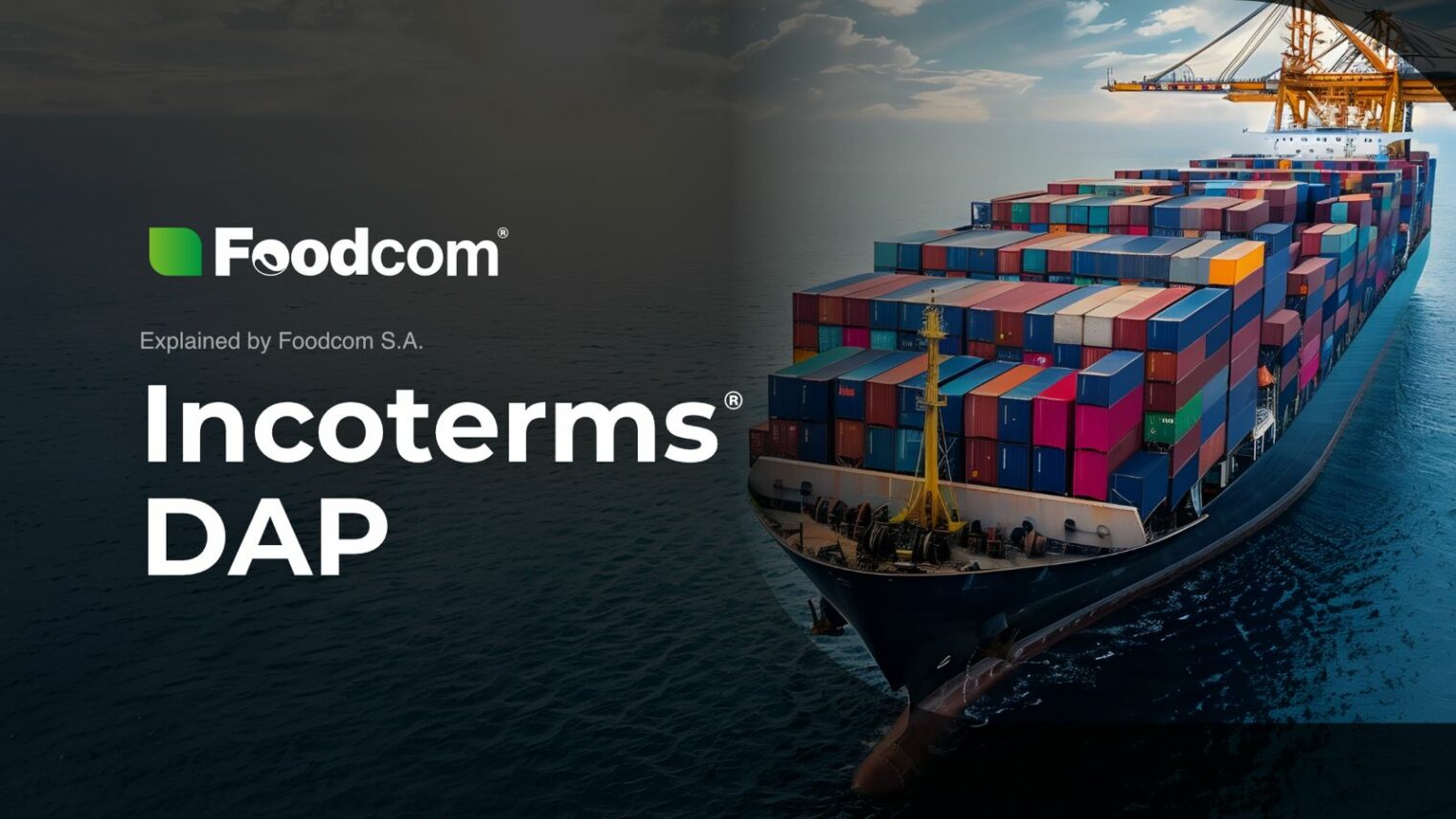- Incoterms® DAP (“Delivered at Place”) is an international delivery standard where the seller delivers the goods to the designated place, but unloading is the responsibility of the buyer.
- The seller bears the risk of loss or damage to the goods until delivery at destination, after which the responsibility shifts to the buyer.
- The DAP rule can be applied to any type of transportation.
What are the Incoterms® rules?
Incoterms® (International Commercial Terms) are a set of standards that govern the delivery terms for goods in international trade. They were introduced by the International Chamber of Commerce (ICC) and are accepted and used all over the world as they provide clarity and transparency in commercial transactions.
DAP Incoterms®: what does that mean?
DAP stands for “Delivered at Place.” It is a Group D rule, which means that the seller is obliged to deliver the goods at the destination.
DAP rule: delivery conditions
Generally, under the DAP rule, it is the seller’s responsibility to deliver the goods to the intended destination, but the question of unloading is already on the buyer’s side.
Sharing of costs
The seller must pay the costs:
- for the transport of the goods,
- export clearance,
- provision of transport documents,
- loading for the main transport.
In return, the buyer must pay:
- conclusion of the transport contract,
- unloading costs,
- import clearance,
- all costs incurred from the moment of taking over the goods.
Division of responsibilities
The seller’s obligations include: delivering the goods to the specified place at the specified time, providing the sales documents, being responsible for the goods until delivery, arranging transportation and export clearance, preparing the goods, i.e. weighing and possibly packing them, and providing documents authorizing receipt of the goods.
The buyer, on the other hand, must: inform the seller of the place and date of delivery, pay for the goods, receive and unload them, and organize import clearance.
Time of the transfer of risk
Under DAP Incoterms®, the seller is responsible for the risk of loss or damage to the goods until they are available for unloading by the buyer at the destination. From that moment, all responsibilities are assumed by the buyer.
Forms of transportation
The DAP rule is universal and can be applied regardless of the chosen mode of transportation – road, rail, sea or air.
What should be considered when choosing Incoterms® DAP?
When choosing Incoterms® DAP, it is worth remembering that the responsibility for organizing and bearing the costs of transport to the destination lies with the seller. The buyer, on the other hand, must be prepared to cover the cost of unloading and any import charges. In addition, the parties do not have to agree on the insurance of the goods, although this is recommended and often done by the sellers, since they bear the main responsibility.
DAP vs. other rules
The DAP Incoterms® rule can be compared to the DDP rule. Both rules assume that it is the seller who delivers the goods to a specific location, but in the case of DDP, all customs duties, taxes and clearance requirements are to be borne by the seller, while in the case of DAP, these costs are to be borne by the buyer.
Trade with Foodcom S.A.
In the world of global trade, understanding Incoterms® rules is critical to efficient transactions. With Foodcom S.A.‘s support, every aspect of the process becomes easier. Our sales representatives draw on the expertise of specialists in the logistics department to carefully select the appropriate means of transportation. Our sales support department is available at every stage of the process, ensuring that the standards and requirements of our Business Partners are always met. At Foodcom S.A. we are committed to realizing even the most advanced projects and ensuring that everything goes according to plan.








